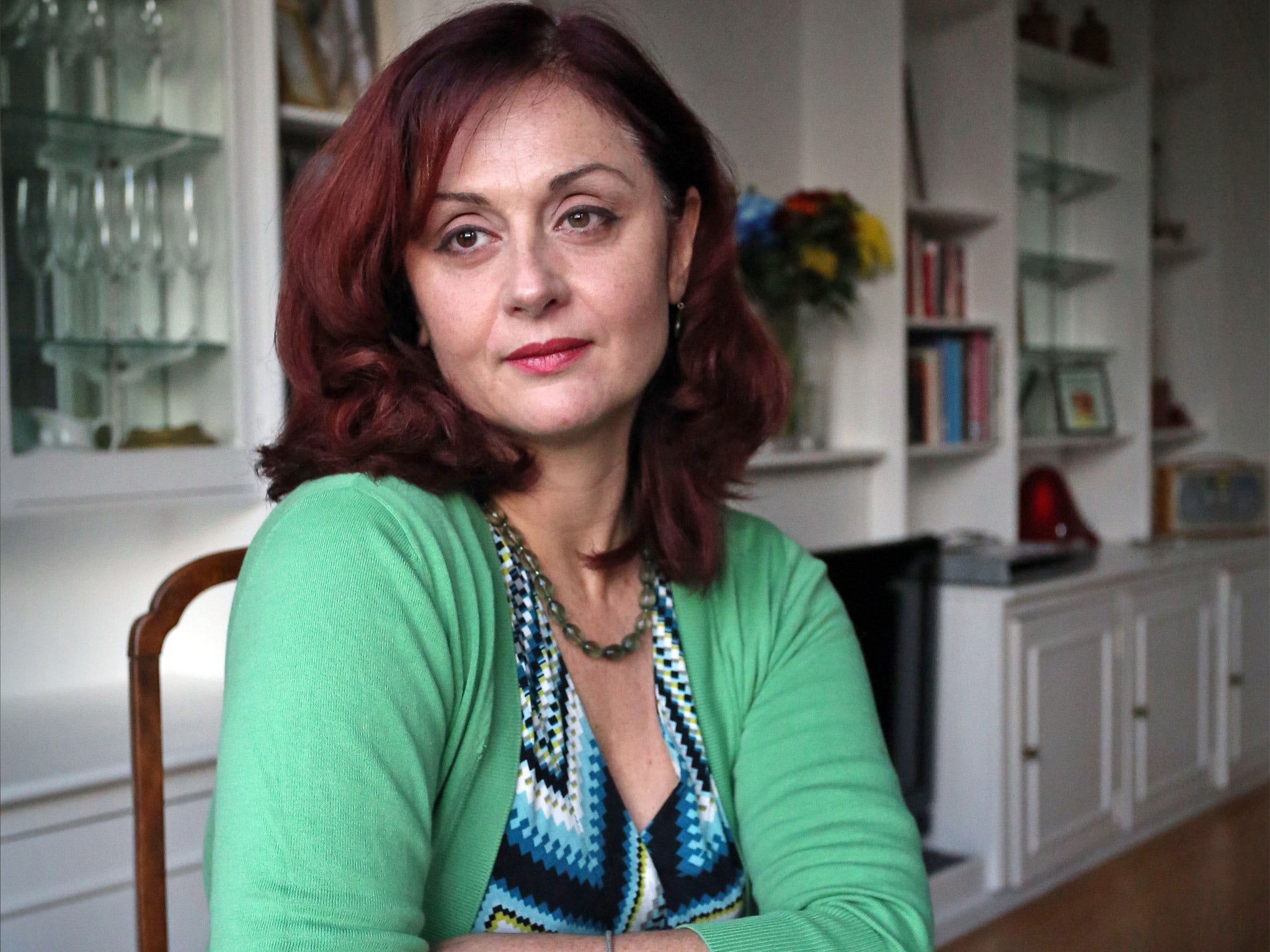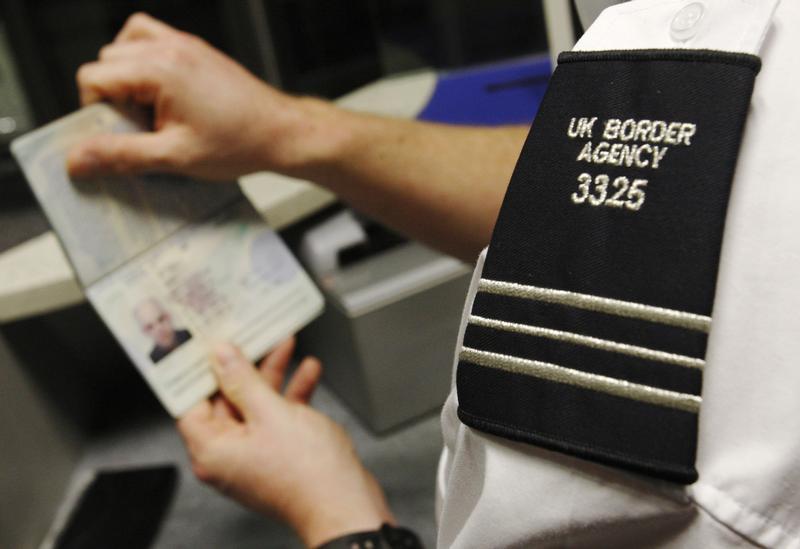Harley Miller: ‘I feel like I’ve been let out of prison. It was like I was under house arrest’
An Australian NHS therapist threatened with deportation from the UK has finally been told she can remain

An Australian NHS therapist who was told she would be deported from Britain – sparking a grassroots campaign against the Home Office decision – has won her case to remain in Britain.
Mariam Miller, 49, known to her friends as Harley, has now been granted a visa to stay in the UK after a judge ruled it was “palpably evident” her removal would be detrimental to the British taxpayer.
The Independent was the first newspaper to report Ms Miller’s case in November 2013, when the Home Office gave her just 28 days’ notice to leave the country. Until that week she had worked for nine years in the NHS as a specialist psychotherapist, helping some of the country’s most vulnerable children.
Judge Raymond, who heard her appeal at Hatton Cross immigration tribunal, ruled that Ms Miller’s contributions to Britain and the NHS “amount to compelling and exceptional circumstances warranting consideration outside of the rules”. He also argued she should be allowed to stay on human rights grounds, because of her extensive network of friendships and community links in the UK.
In a critique of the Home Office’s handling of the case, he said, “It would be disproportionate and not justified by any legitimate public interest in the maintenance of immigration controls” if Ms Miller were removed from the country.
The appeal ruling was issued last October, but it can only now be reported because a gagging order has been lifted. In December Ms Miller was granted two-and-a-half years’ discretionary leave to remain and had her passport returned. While the case dragged on, Ms Miller was unable to work or leave the country, living off savings in her south London home while her professional experience went unused. Speaking after the ruling, she said: “I just feel like I’ve been let out of prison. It felt like I was under house arrest for a year and a half and now it feels like I’ve been released. For a year and a half of my life I couldn’t do a single thing: I couldn’t enrol on a course; I couldn’t progress my career; I couldn’t even travel.”
Ms Miller first came to Britain on a spousal visa with her Italian husband 10 years ago. When he left her in 2008, she told the border agency what had happened and they wrote confirming she could stay until the end of that spousal visa, which ran out in 2011. She then applied for discretionary leave to remain, but when the Home Office got back to her two years later, it claimed she should never have stayed after the marriage ended.

After her case was reported in The Independent, Ms Miller’s battle to stay became a cause célèbre, with more than 30,000 people sharing a Facebook campaign page and 10,000 signing a petition to the Home Secretary. One of the witnesses at her hearing was a friend who had set up the petition and Facebook appeal. He began his testimony by placing a heavy pile of all the printed-out messages and signatories on to the judge’s desk. In his ruling, the judge cited this support as one of the reasons why an exception to the rules should be made in her case.
Ms Miller said: “I’m very grateful to The Independent for their coverage. The publicity from the paper prompted people to find me on Facebook and show their support with very kind comments and to sign that all-important petition.
“As a result, there was a clear message to the Home Office and the judge that the public wasn’t happy with the initial decision. I don’t think so many people would’ve known what was happening if it weren’t for the articles.”
Mr Raymond said Ms Miller’s job for the NHS had brought her “the highest accolades and appreciation from numerous colleagues”. Among the evidence was a letter from the chief executive of one of the NHS trusts where she had worked, saying there was a national shortage of people with her specific skills, including expertise in treating children displaying early signs of worrying sexual behaviour, and that it was “extremely difficult” to find people of her calibre. Another colleague described Ms Miller as “one of the most skilled and gifted family therapists” she had ever worked with, saying her deportation “would be a significant loss to the UK”.
Charles Green, a solicitor at Fragomen who represented Ms Miller, said: “The Government has consistently pledged its commitment to attract the ‘brightest and the best’ to the UK and it is evident from the immigration judge’s decision and the heart-rending testimonials from the many families she has helped that Harley is undoubtedly among the brightest and best professionals in her field. However, despite this the Government inexplicably failed to recognise her value to the NHS and was prepared to lose her highly specialist skills at a time when there has never been a greater need for them.”
The day after Ms Miller’s passport was returned she booked a flight back to Sydney to surprise her 81-year-old mother on Christmas Eve. She had been unable to leave the country while her immigration battle continued and was relieved to have the chance to go. “It was amazing to see her. I was terrified my mum would die while all this was happening and I’d have to choose between [a future in Britain and seeing her again].”
Now back in Britain, Ms Miller is planning what she might do next. “I might try working for an NGO now. I feel very sorry for the kids here but there are services for them. What about people without access to the NHS, like kids in detention or asylum-seeking children who’ve been through the trauma of war and aren’t getting any help?”
Why the story can only be told now
When Justice Raymond allowed Ms Miller’s appeal in October 2014, he included a gagging order in his ruling so that nobody could publicise the outcome of the case.
The judge justified the heavy-handed anonymity order by saying it was designed to protect the identities of vulnerable young former patients who had given evidence about Ms Miller’s professional skills.
But neither they nor Ms Miller’s lawyers had asked for anonymity, and would have certainly been against it if it meant a blackout on all reporting of her case. After an appeal from The Independent and Ms Miller’s lawyers, the ruling was successfully amended last week to protect their identities but not the substance of the case.
Join our commenting forum
Join thought-provoking conversations, follow other Independent readers and see their replies
Comments